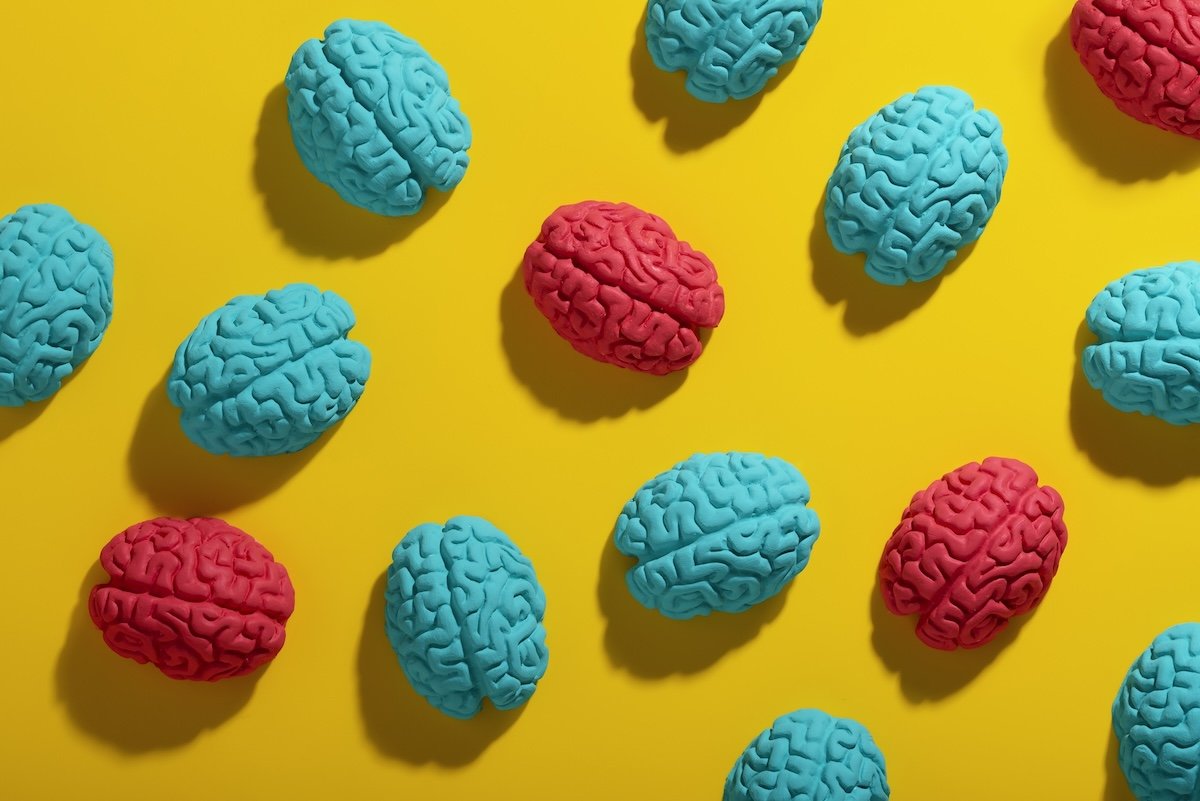
Does this sound like you? As a college student or recent graduate are you…
… struggling with lack of confidence, low self-esteem, or feelings of defectiveness?
… engaging in negative self-talk?
… feeling the weight of high expectations?
… anxious about your future after graduation?
… feeling unprepared to enter the workforce?
… seeking identity?
… turning to unhealthy coping mechanisms like alcohol or drugs?
You’re not alone, and I have good news for you!
Struggles like lack of confidence, negative self-talk, and low self-esteem are NOT just “in your head” - they are a function of how your brain is wired.
Why do the common self-administered responses not work?
Many college students attempt to handle these challenges on their own, often with limited and non-lasting success. They do things like like:
Ignore, avoid or minimize the problem due to mental health stigmas
Use alcohol or drugs to escape
Strive for perfection or over-schedule yourself
Compare yourself to others
Use social media thinking it will make them feel better
Seek “quick fixes” from external sources i.e. social standing
Avoid anxiety-inducing situations
Isolate yourself or avoid mental health resources
These solutions may provide very temporary relief but do not address the root cause of the problem. These symptoms have been built up over time and have manifested themselves in the form of neural pathways in the brain.
But the GOOD news is that you can rewire your brain through Neuroscience Coaching and Psychoeducation!

A Smarter Way to Build Confidence
As a Neuroscience Coach, I take a holistic approach when addressing the root causes of low confidence and self-esteem. My coaching blends neuroscientific insights and techniques with practical strategies to help you build a better version of yourself and thrive.
Here’s How I Can Help You Transform Your Personal Development:
Healthy Foundations: Learn how proper diet, sleep, and exercise optimize brain function and provide the resources for changes in the brain.
Understand Neuroplasticity: Discover how your brain changes, adapts & evolves and why it’s never too late to break negative patterns and replace them with ones that benefit you.
Challenge Negative Thought Patterns: Thoughts are just thoughts, they aren’t true until we make them true. Learn how to “observe” and evaluate thoughts instead of believing everything that pops into the mind.
Avoid Comparing Yourself to Others: Comparing ourselves to others and drawing conclusions about ourselves can be detrimental to mental health. Learn to acknowledge your own strengths, progress, and unique qualities. Redirect thoughts about comparisons to gratitude for your own abilities and experiences.
Practice Mindfulness & Stress Reduction Techniques: Develop stress-reduction techniques like meditation, deep breathing and grounding to manage anxiety.
Set Realistic Goals: Create achievable objectives that build your confidence over time.
Foster Self-Compassion: Embrace kindness toward yourself, celebrate your achievements, and build resilience.
Develop Coping Strategies: Find healthy outlets like journaling, positive affirmations, mantras, and creative hobbies to regulate emotions.
Build Emotional Intelligence: Improve how you understand and manage emotions, develop empathy for others thereby creating stronger relationships.
Create Support Networks: Learn how to cultivate a community of mentors, peers, and resources for ongoing encouragement.
"I struggled with lack of confidence, low self-esteem and feelings of defectiveness throughout college and into early adulthood. My mind was filled with negative emotions, self-talk and anxiety, making it hard to function effectively sometimes. I was highly aroused and reactive, many times perceiving threats where there weren’t any. I felt overwhelmed by high expectations, not content with who I was or where I was in my life at any point in time. I coped with alcohol and drugs to calm the anxiety. Happiness was elusive for me .
Seeking help can be life-changing; I learned to challenge my negative thoughts and embrace self-compassion. Gradually, I found the confidence to believe in myself and my abilities, transforming my life."
Am I the right Coach for you?
A major factor in the success of coaching is the relationship between the coach and the client - is there trust and credibility?
I’ve been where you are in your life. I grew up with the same struggles that many college students face today.
I have compassion and empathy for your struggle, and know what it takes to break free from the emotional, cognitive and behavioral patterns that can make us anxious and depressed.
As a child, I struggled with low self-esteem, self-doubt, and anxiety—symptoms and conditions that were brought on by a mix of genetics and my experiences i.e. frequent moves due to my father’s career, constantly attending new schools, leaving old friends, meeting new friends, physical discipline, being separated from my family as a young teen, and experiencing abuse.
By the time I reached college, I was uncomfortable in my own skin, overwhelmed by negative self-talk and unhealthy perceptions of myself. I didn’t know that I needed help, and I was too unaware to ask for it. Like many, I turned to addictive substances to cope with my struggles.
This went on for years after college until I hit rock bottom in my late forties from an addiction to pain pills and alcohol. That moment of crisis became my catalyst for change. That moment became the turning point, where I finally addressed the root causes of my low self-esteem, lack of confidence, and self-image issues.
It’s one thing to read about these struggles in books, but it’s entirely different when you’ve lived through it, and done the work to develop a new way of seeing yourself and approaching life. Who better to help you cultivate your self-image and help you build confidence than someone who has successfully navigated that journey themselves?
This personal experience, a deep understanding of neuroscience and how the brain creates change, and empathetic style translate into an effective, results-oriented coaching relationship. I know how hard it is to break free from the cycle when you’re in it, and I also know exactly what it takes to break free from it.
As a Neuroscience Coach, a member of Alcoholics Anonymous, and a mental health advocate on college campuses, I’ve worked with numerous individuals—students and adults—on their personal development, self-esteem, and recovery.
The issues of low self-esteem, lack of confidence, negative self-talk, and the mental health conditions that stem from them—like anxiety and depression—are rooted in the brain. They arise from a mix of internal and external factors affecting several brain networks. My fascination with the brain and its capacity to change began when I was addressing my own struggles.
I learned everything I could about neuroscience as it related to my own mental health and addiction. The transformation was so life-changing for me, I wanted to try and help others experience similar relief from their struggles. This passion led me to pursue graduate-level coursework to become a certified Neuroscience Coach.
With life experience, training in neuroscience and other modalities of coaching, along with a compassionate, direct coaching style, I have the comprehensive skillset to guide the college student and young adult through the process of transformation.
I look forward to helping you navigate this journey and build a mental foundation to achieve happiness, meaning and purpose for the rest of your life.
Do you relate to any of these commonly attempted “flawed solutions”?
College students often struggle with a lack of confidence, low self-esteem, negative self-talk, resulting in anxiety. In response, they may adopt ineffective strategies that only worsen the problem.
Problem Avoidance: Many students downplay or ignore their struggles, hoping they will resolve on their own. Fear, embarrassment, or a belief that “this is just how it is” can delay seeking help, allowing issues to persist.
Substance Use: Turning to alcohol or drugs for relief may provide a temporary escape but often intensifies anxiety, worsens mental health, and introduces additional long-term consequences.
Perfectionism: Attempting to overcompensate through perfectionism leads to overwhelming pressure, increased anxiety, procrastination, and eventual burnout.
Social Comparison: Comparing oneself to peers, especially on social media, amplifies feelings of inadequacy and fuels negative self-talk and low self-esteem.
Isolation: Withdrawing from social activities or support systems can deepen feelings of anxiety and self-doubt, creating a cycle of loneliness and worsening mental health.
Situational Avoidance: Avoiding anxiety-inducing situations like public speaking or group projects may offer short-term relief but prevents students from developing confidence and coping skills.
Ignoring Mental Health: Dismissing mental health needs with thoughts like “I should just get over it” often leads to worsening symptoms and a growing sense of helplessness.
Seeking Quick Fixes: Believing external achievements like grades or social status will solve self-esteem issues sets students up for disappointment and reinforces insecurity.
Reinforcing Negative Self-Talk: Habitual harsh self-criticism perpetuates low self-esteem and anxiety instead of encouraging healthier thought patterns.
Over-Scheduling: Overcommitting to activities as a distraction can lead to overwhelm and stress, without addressing the root causes of emotional struggles.
Misunderstanding Mental Health: Lack of awareness or stigmatizing beliefs about mental health resources prevents students from seeking the help they need.
These flawed approaches highlight the need for targeted, professional interventions. Effective solutions focus on addressing the underlying causes, rewiring negative patterns, fostering sustainable self-belief, and motivation to pursue the best versions of ourselves.

Self-Esteem & Confidence in the Brain
Lack of confidence, low self-esteem, negative self-talk, anxiety, and the weight of high expectations are interconnected, influenced by physiological, psychological, and environmental factors. Here’s how brain function plays a role:
Neurotransmitters: Neurochemicals like serotonin, dopamine, and norepinephrine regulate mood and emotions. Imbalances can contribute to anxiety and low self-esteem.
Brain Networks: The limbic network (emotion regulation and memory, motivation), default mode network (self-reflection, autobiographical memory and rumination), salience network (threat detection, emotion awareness), and frontoparietal network (self-reference, emotion regulation and cognitive control) interact with each other and shape how we perceive ourselves and respond to stress. The more we repeat and ruminate over a negative view of ourselves, the more it strengthens in the brain in the form of neural pathways (connections of neurons that represent repeated thoughts or behaviors).
Cognitive Patterns: Negative self-talk often stems from cognitive patterns rooted in repeated past experiences, forming persistent neural pathways that perpetuate low confidence.
Stress Response: Chronic stress amplifies and worsens anxiety, creating a feedback loop that affects brain function and mental health.
Learning and Conditioning: Early life experiences and conditioning can shape how anxiety and self-esteem develop. Negative experiences may create associations that influence a person's thoughts about themselves and their abilities.
Confidence and self-esteem are psychological constructs and traits, they are influenced in our brains by interconnected brain regions forming neural connections that represent our patterns for how we experience ourselves.
The good news!?
The brain’s neuroplasticity (ability to change and adapt) allows us to change these interconnections and therefore how we experience emotions, thoughts, perceptions and feelings. By combining compassion, neuroscience coaching techniques, psychoeducation, and new behaviors with the brain’s natural ability to change, we can transform how we experience ourselves.
Take the first step toward greater confidence today!
Let’s talk!
Schedule a free consultation and take the first step toward a stronger, healthier you!





